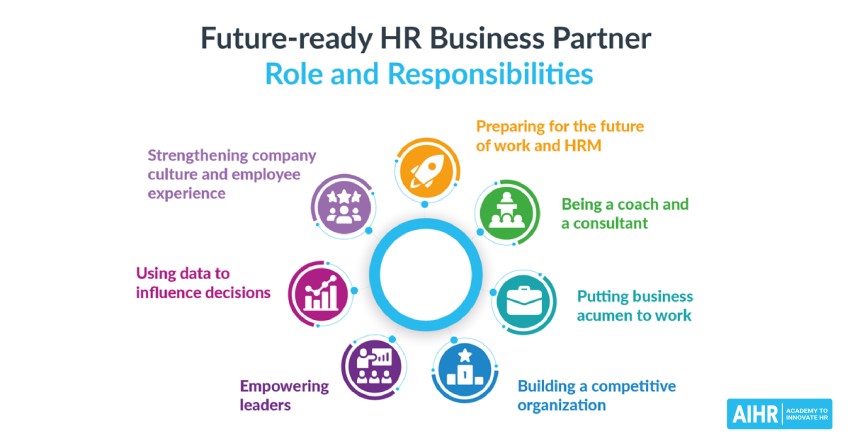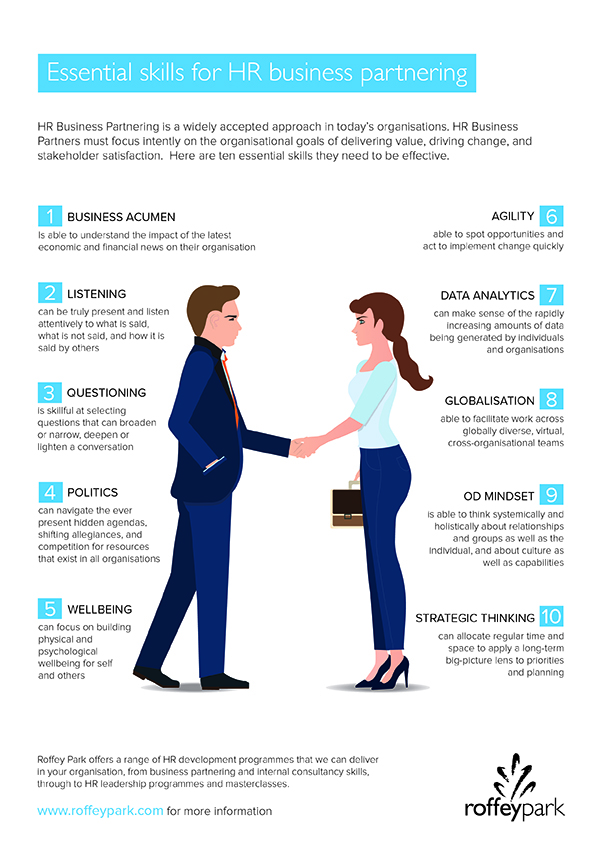Every successful organization needs a human resources business partner (HRBP). If you are an organization interested in unlocking your manufacturing potential, investing in an HRBP should be your next big step. What is human resources business partner? What abilities do they require to succeed? We will answer all of this and more in the following article.
What is human resources business partner (HRBP)?
A human resource business partner, also known as a human resources business partner or HRBP, is a strategic position responsible for delivering value to an organization and driving decision-making. Simply put, an HR business partner is an experienced HR professional who works directly with senior managers, directors, and business leaders to develop an HR strategy that supports the success of the company. development, performance, and organizational goals. HRBP also performs some tasks on behalf of clients, such as employee training or benefits package evaluation, which can reduce administrative burdens.

What does an HR business partner do?
The HR business partner’s role is to ensure that HR policies and procedures throughout the organization are aligned with the organization’s needs, goals, and top management. Instead of doing daily training or dealing with policy wording or details of benefits and recruitment packages, the HR business partner works with the big picture. The person in this position defines and directs the goals of the organization’s human resources department, focusing more on strategy development than policy implementation. The HR business partner ensures that the HR strategy aligns with the organization’s overall business strategy. They are like a consultant working in HR, building relationships and providing resources across departments across the organization.
The Core Tasks of an HR Business Partner
Strategic control of HR processes
Employees are a company’s most valuable resource, and the current shortage of skilled professionals is one of the biggest challenges facing HR. HRBP is equipped with the strategic vision to identify bottlenecks early and run smooth, efficient recruitment processes.
Staff Training & Development
Once the right employees have been brought in, HRBP ensures that they stay on track and help move the company forward. It is important that HR provides appropriate professional development and training initiatives for managers and employees. These not only drive productivity but are also essential to a company’s ability to add value.

Control the change process
The growing number of challenges faced by everyone in HR is clear evidence of the importance of digitalization. Professional roles need to be revisited, a new dynamism needs to be introduced into established work structures and processes such as recruitment and referrals need to be made available online.
Build an employer brand
As an HR business partner, it is your responsibility to bring your company’s corporate culture to life and ensure that it supports growth. At the same time, your job is also to communicate the corporate culture and everything related to it to the outside world. This is strategically essential if you want to hire the best employees available, both in today’s highly competitive market and in the future.
Close cooperation with Executive Management
As an HRBP, your role goes beyond that of an in-house service provider. Instead, you are the executive management’s direct point of contact for everything related to planning and meeting staffing requirements.
Key skills of an HR business partner

There are a number of requirements that anyone who wants to become a human resources business partner must meet. Let’s take a look at some of the essential HR soft skills that any HRBP needs to possess to be successful below:
- People management skills: A human resources business partner should possess excellent project and people management skills. This is important because they will be responsible for managing a wide variety of resources and stakeholders.
- Effective communication skills: An HR business partner also needs to have excellent communication skills. This will help them skillfully manage a number of activities, from negotiation to conflict or crisis resolution.
- Business knowledge: You need to understand the core business functions, how the business units interact, and how the org chart works. You also need to have a keen sense of cultural awareness. In addition, you need to have a good understanding of various employment laws, business practices, and compensation structures.
- Adaptability to Change: A good HRBP also needs to be able to adapt and effectively manage change and transformation. This allows them to adapt to evolving business goals, such as those experienced during the Covid-19 pandemic.
- Proficiency with digital tools: Finally, HRBP needs experience working with a variety of software tools and solutions. This includes experience with tools for business intelligence, decision support, data visualization, and online communities that support information sharing.
HR business partner vs. HR manager: What are the differences?
The chief human resources officer and the HR business partner play distinct roles and represent two alternative approaches to providing HR services within a firm. The main responsibilities of a human resources manager include creating policies and enforcing rules. System administration, processing of payroll, hiring, and other tasks fall under the purview of this job. The human resources division is managed by the HR manager.

On the other hand, the HR business partner has no managerial responsibilities for a department. Their main responsibility is to collaborate with the company’s divisional managers and senior leadership team to assist direct and communicating the company’s overall strategy. Business partners for HR work with HR and provide advice to the executive team on HR-related challenges and projects. They can contribute to the development of HR initiatives and strategies that affect the entire organization.
Conclusion
In conclusion, a human resources business partner plays a critical role in supporting an organization’s overall business goals and objectives by aligning HR strategies with the company’s needs. Additionally, they offer direction and assistance to managers and workers on a variety of HR-related concerns. Any organization can benefit from having an HR business partner since they ensure that the workforce is efficiently managed and in line with the organization’s overall objectives.

